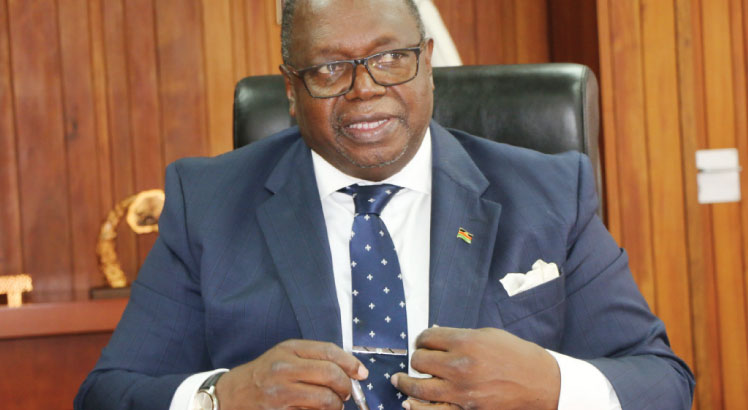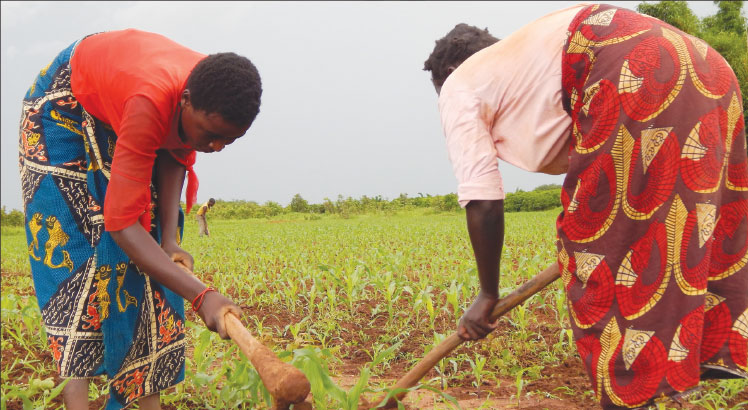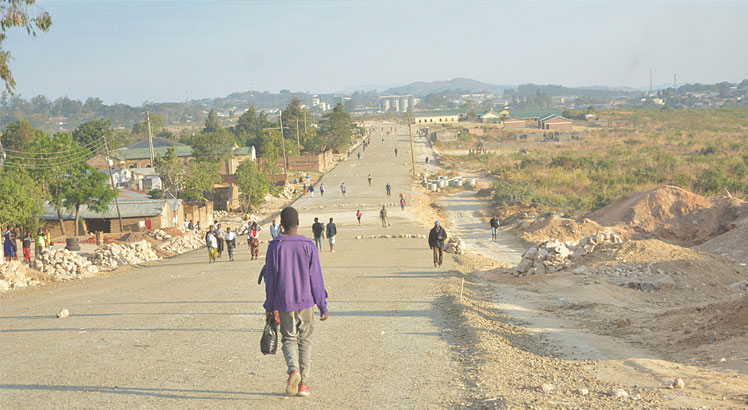The Reserve Bank of Malawi (RBM) misreported to the International Monetary Fund (IMF) the country’s foreign exchange reserves status by omitting multi-million-dollar external loan balances between 2018 and 2021, an audit report has shown.
The report, filed by the United Kingdom headquartered firm Ernst and Young (EY), followed an audit into the Agreed Upon Procedures (AUP) between IMF and the Central Bank regarding the Net International Reserves (NIR).
Banda: We are on watch list
following misreporting
The three-year spell in review falls under the Democratic Progressive Party (DPP) regime and the current Tonse Alliance administration. The report, however, blames lack of policy for NIR submissions at RBM.
It reads in part: “There is no comprehensive documented policy for NIR submissions describing the procedural steps for NIR calculations, information needed, reviews and approvals and timelines.
“There is no clear ownership of the process of producing the NIR submissions. The Bank does not document or adequately document the mapping and audit trail of the balances from their source into the NIR submissions.”
It is depicted in the report, the RBM omitted Trade and Development Bank (TDB) balances totaling $706 million (K774.5bn) in its IMF submissions to secure Extended Credit Facility (ECF) between 2018 and 2019. David Kabambe was the governor then.
The EY further reports that the RBM omitted $30 million (around K33bn) Badea Bank balances in its reporting to the IMF in December 2021.
This was done under the current governor Wilson Banda who took charge after Tonse Alliance triumph during Fresh Presidential Elections in 2020.
The NIR submissions, according to the report, are conducted through three RBM departments; the Financial Market Department (FMD) Economic Policy Research (EPR) and Accounting and Finance Department (AFD).
Other than blaming the involvement of all these departments, EY takes aim at the absence of a register of agreements among these departments.
The report, addressed to the RBM governor reads: “The compilation of the NIR submissions must have been seriously impeded by the absence of a consolidated register of agreements, accessible to all three departments.
“In our view, such a consolidated register of agreements is a critical internal control within the procedures for compiling NIR submissions.
“These weaknesses have again been illustrated in the draft submission for 31 December 2021 made by the Bank in April 2022, which we found to have omitted the Badea exposure of $30 million.”
In their recommendations, the auditors ask RBM to trim the departments involved in the NIR submissions.
“The Bank should consider reducing the number of departments involved in the compilation of NIR submissions from three to two and making the NIR submissions the clear responsibility of just one department which is knowledgeable about the balances which go into the NIR, that is either AFD or FMD,” the report adds.
The report, which Nation on Sunday has seen, further establishes that during the period under review, there were “unconfirmed or incorrectly recorded” balances deposits and bonds totaling around $30 million (K31bn) under the former regime and $9.6 million (around K10bn) under the current demonstration.
The audit was conducted in the wake of the arrests of Kabambe and former Minister of Finance Joseph Mwanamvekha in 2021 and former deputy RBM governor Henry Mathanga. The trio is being accused of doctoring financial figures that were submitted to the IMF while they were in office. They deny the allegations.
In a response to our questionnaire, RBM spokesperson Mark Lungu argued that Malawi did not have an IMF programme, therefore, the omission of Badea facility balances.
He said: “Firstly, we were not on an IMF Programme in 2021 for a case of misreporting to arise. What the report was basically saying was that if we were to use the revised definition on NIR, we should have included the Badea facility in the calculation.
“At that point, and the report was clear, we had not yet agreed to the new definition. It was a recommendation for better coordination of key departments for better implementation of the new definition of the NIR calculation.”
However, a source with knowledge about IMF and government deals said Malawi still has to undertake the reporting.
“They do not have an ECF programme but they have a staff monitored programme with the IMF in which they are also expected to play by the same rules,” said the source, who asked for anonymity.
At a press conference a fortnight ago, RBM governor delved into contents of the report some confirming the misreporting and its consequences.
“Basically, it confirmed a number of things that have been alleged thereon. There are certain reports we cannot share without their (auditors) consent. We shared the report with the IMF and the ones that initiated it.
“If you read the report of the IMF board when they discussed Malawi , they acknowledged the misreporting on Malawi and then they took a decision to waive certain penalties that should have been put on the country,” he said.
Banda further said the country has been assigned on watch list following the misreporting.
“We received quite a substantial amount from the IMF and that was given to Malawi on the understanding that they have met the target. As it turned out, the figures that were given to the IMF were fictitious.
“And because we lied to the IMF, the penalty was that we should pay back. We went to the IMF and pleaded with them that our position is very weak. Our balance of payment is not what it was.
“Therefore, we don’t have the capacity. Then they said we are waiving the penalty but Malawi will remain on that watch list. We have to get all the numbers that were given to the IMF to be audited not by one auditor but by an additional level of auditors outside Malawi. That’s the penalty that we ended up getting,” Banda explained.
Meanwhile, the Public Accounts Committee of Parliament vice-chairperson Ned Poya described the audit findings as interesting while calling for extension of audit to all debts and aid.
“It doesn’t make sense to keep on borrowing and be involved in continued misreporting. We need to audit the projects the loans were supposed to be used for. As a country, we need to have a self-introspection and find out what is happening with our debt and aid,” he said in a response to our questionnaire.
Meanwhile, Wisdom Mgomezulu, an economics lecturer at the Malawi University of Business and Applied Sciences, has said the country’s risks jeopardising its relationship with donor and lenders if RBM does not strengthen its NIR submission mechanisms.
“Going forward, authorities should work hand in hand with IMF, to ensure verification from both sides of the process of the computation of the NIR.
“Structures and procedures should be implemented so that even if we change governments, commitment has to be there that the central bank provides accurate data which is verified by all trusted partners,” he said in a response to our questionnaire on Saturday.
Meanwhile, the RBM is pushing to retain the ECF but implementing the conditions set by the IMF which included addressing the misreporting and soaring external debts currently at K7.9 trillion.
The post Audit exposes DPP, Tonse govts fiscal flaws appeared first on The Nation Online.
 Moni Malawi
Moni Malawi 

